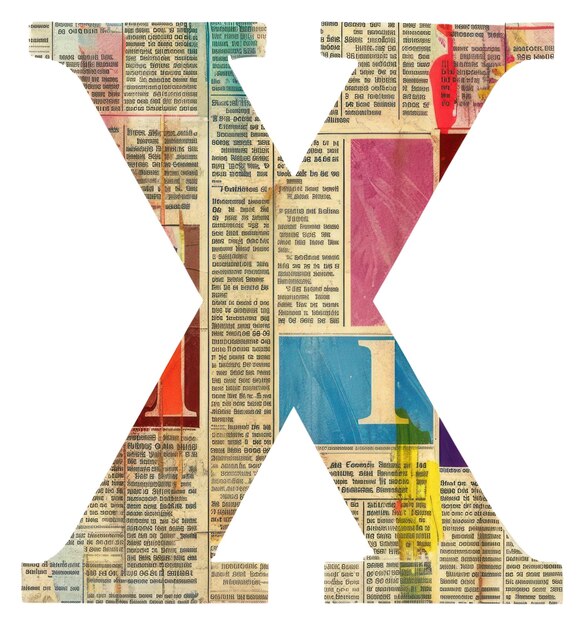Future of News: Tokenized Reputation vs. Editorial Boards by 2028

The future of news platforms may see traditional editorial boards replaced by tokenized reputation systems by 2028, which could revolutionize content verification and trustworthiness through blockchain technology.
The news industry is constantly evolving, and the emergence of blockchain technology introduces intriguing possibilities. A key question arises: Could tokenized reputation systems replace traditional editorial boards by 2028? This shift could redefine how news is curated, verified, and consumed.
The Current State of News Platforms
Today’s news platforms face numerous challenges, including declining trust in media, the spread of misinformation, and the struggle to monetize content effectively. Traditional editorial boards, while intended to ensure journalistic integrity, are often criticized for bias and lack of transparency.
These boards typically consist of editors and senior journalists who make decisions on content selection, fact-checking, and overall editorial direction. However, their subjective judgments can lead to perceived or actual bias, eroding public trust. Additionally, centralized control can stifle diverse perspectives and limit innovation in news delivery.
Challenges Facing Traditional Editorial Boards
Several challenges undermine the effectiveness of traditional editorial boards, contributing to the current crisis of trust in media.
- Bias: Editorial boards, being composed of individuals, inevitably carry their own biases, which can influence content selection and presentation.
- Lack of Transparency: The decision-making processes of editorial boards are often opaque, making it difficult for the public to understand the rationale behind editorial choices.
- Centralized Control: A small group of individuals wielding significant control over news dissemination can limit diverse perspectives and stifle innovation.
- Slow Adaptation: Traditional structures often struggle to adapt quickly to technological advancements and changing audience preferences.
The limitations of the current system necessitate exploring alternative models that can better address these challenges and restore trust in news media.
Understanding Tokenized Reputation Systems

Tokenized reputation systems offer a decentralized approach to content verification and curation. These systems leverage blockchain technology to create transparent and immutable records of user contributions and their associated reputation scores.
In essence, users earn tokens based on the quality and accuracy of their contributions, whether it’s reporting news, fact-checking, or curating content. These tokens can then be used to influence the visibility and credibility of news items, creating a self-regulating ecosystem.
How Tokenized Systems Could Work
The implementation of tokenized reputation systems in news platforms involves several key components.
- Content Creation: Users submit news articles, reports, and other content to the platform.
- Verification: Other users review and verify the accuracy of the submitted content, earning tokens for their contributions.
- Reputation Scoring: Each user receives a reputation score based on the quality and accuracy of their contributions.
- Content Ranking: News items are ranked based on the reputation scores of the users who verified them, increasing the visibility of trustworthy content.
This decentralized approach aims to eliminate bias and promote transparency, providing a more reliable source of information for consumers.
Tokenized systems also foster a community-driven environment where users are incentivized to ensure accuracy and avoid spreading misinformation.
The Potential Benefits of Tokenization
Tokenized reputation systems offer several potential benefits over traditional editorial boards, addressing many of the challenges facing the current news landscape. Enhanced transparency, increased trust, and community-driven verification are some of the advantages.
These systems can foster a more democratic and reliable news ecosystem by empowering users to participate in content verification and curation. This model supports a more diverse range of voices and perspectives, while increasing the overall credibility of the information shared.
Key Advantages Over Traditional Boards
The shift towards tokenized systems can yield considerable improvements.
- Increased Transparency: Blockchain technology ensures that all content verification and curation processes are transparent and auditable.
- Enhanced Trust: Reputation scores provide users with a clear indication of the trustworthiness of content and contributors.
- Community-Driven Verification: Decentralized verification processes reduce the risk of bias and ensure a more balanced assessment of news items.
- Incentivized Accuracy: Users are incentivized to ensure the accuracy of their contributions through token rewards.
By aligning incentives and leveraging the power of community verification, tokenized systems have the potential to revolutionize news consumption.
Challenges and Obstacles to Adoption

Despite the potential benefits, the adoption of tokenized reputation systems faces significant challenges. Ensuring the accuracy of verification processes, preventing manipulation, and scaling the technology are among the hurdles.
It is crucial to address these challenges proactively to ensure the integrity and effectiveness of tokenized news platforms. Technical innovations, smart governance models, and adaptable incentive structures are critical for successful implementation. Overcoming these challenges will pave the way for mainstream adoption.
Potential Pitfalls and Mitigation Strategies
Various issues could hinder the transition into tokenized news platforms.
- Verification Accuracy: Ensuring that user verifications are accurate and unbiased is crucial. Implementing robust validation mechanisms can mitigate this.
- Manipulation: Tokenized systems are susceptible to manipulation through coordinated attacks. Employing advanced algorithms is necessary to detect and mitigate suspicious activity.
- Scalability: Scaling blockchain technology to handle the volume of news content can be challenging. Optimized blockchain solutions can address scalability concerns.
Addressing these challenges requires a multifaceted approach, including technological solutions, community governance, and ongoing monitoring.
Proactive measures are necessary to protect the integrity and reliability of tokenized news systems.
The Role of Technology and Blockchain
Blockchain technology is fundamental to the operation of tokenized reputation systems. Blockchain provides the essential infrastructure for secure, transparent, and immutable record-keeping, which is critical for establishing trust in decentralized news platforms.
Smart contracts play a key role in automating the verification and distribution of tokens, ensuring efficiency and transparency. Technological advancements in blockchain scalability will further enhance the capacity and performance of these systems.
Technical Aspects of Blockchain Implementation
The technical design of blockchain-based news platforms involves several considerations.
- Distributed Ledger: Blockchain provides a decentralized ledger for storing content verification records.
- Smart Contracts: Smart contracts automate token distribution and verification processes.
- Cryptography: Cryptographic techniques secure the integrity and authenticity of data.
These technical elements work together to create a robust and secure foundation for tokenized news platforms.
Continued innovation in blockchain technology will further enhance the capabilities and efficiency of these systems.
Future Predictions and Scenarios
Predicting the future is difficult, but several plausible scenarios could unfold for tokenized reputation systems in the news industry by 2028. The success of these systems will depend on various factors, including technological advancements, regulatory developments, and public acceptance.
One scenario involves the widespread adoption of tokenized platforms, becoming the primary source of news for many consumers. Alternatively, these systems may coexist with traditional media outlets, forming a hybrid ecosystem.
Possible Futures for News Platforms
Several divergent paths can be envisioned for the evolution of news systems.
- Widespread Adoption: Tokenized platforms become the dominant source of news, with traditional media outlets adapting or fading away.
- Hybrid Ecosystem: Tokenized and traditional platforms coexist, each catering to different audience preferences.
- Niche Adoption: Tokenized systems remain a specialized niche, serving specific communities or interests.
The precise trajectory of news platforms will depend on innovation, regulatory acceptance, and public adoption.
The future of news may involve the use of AI to detect misinformation.
| Key Point | Brief Description |
|---|---|
| 🔑 Tokenized Systems | Decentralized approach using blockchain for content verification. |
| ✅ Benefits | Transparency, trust, and community-driven accuracy. |
| 🚧 Challenges | Ensuring accuracy, preventing manipulation, and scalability. |
| 🔮 Future Scenarios | From widespread adoption to niche use; depends on tech, regulation, and acceptance. |
FAQ
▼
Tokenized reputation systems use blockchain to record user contributions and reputation, incentivizing accurate news verification. Users earn tokens for good behavior, enhancing transparency.
▼
These systems encourage users to verify content accurately by rewarding them with tokens. Decentralized verification processes minimize bias and improve the reliability of news.
▼
Challenges include ensuring verification accuracy, preventing system manipulation, and scaling the technology. Smart governance models and adaptive processes are crucial for successful implementation.
▼
Blockchain provides security, transparency, and immutability for the content verification processes, while smart contracts automate token distribution. These create a trustworthy foundation for news platforms.
▼
The systems might dominate news or coexist with traditional media. Their success depends on technological advances, rules, and public acceptance. The widespread future depends on overcoming the main adoption problems.
Conclusion
The potential replacement of traditional editorial boards by tokenized reputation systems by 2028 represents a significant shift in the news landscape. While challenges exist, the benefits of increased transparency, enhanced trust, and community-driven verification could revolutionize how news is created and consumed, fostering a more reliable and democratic information ecosystem.





